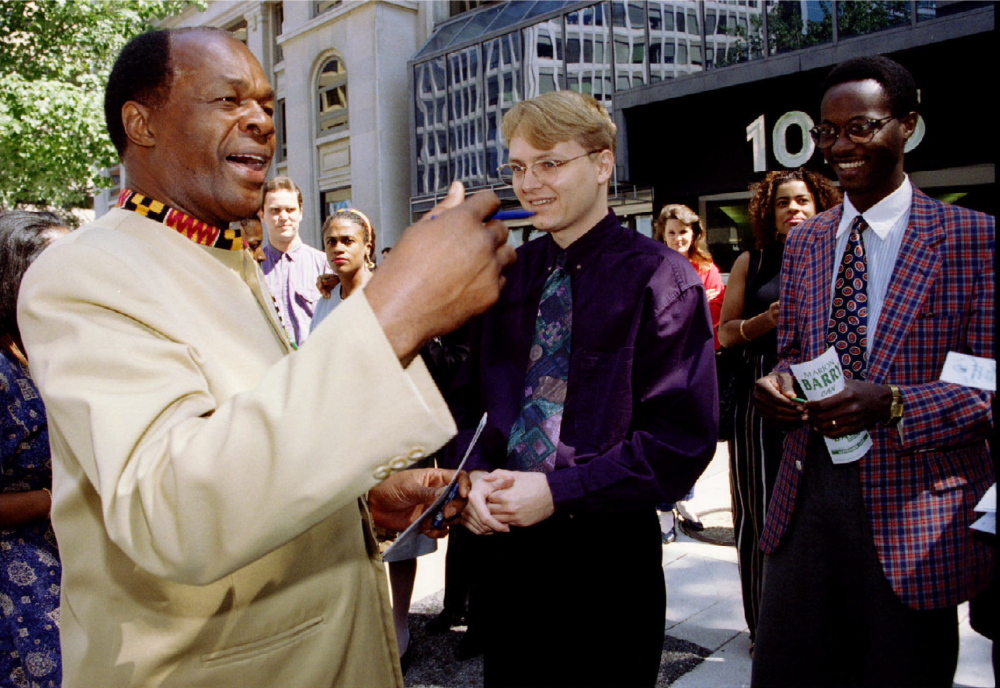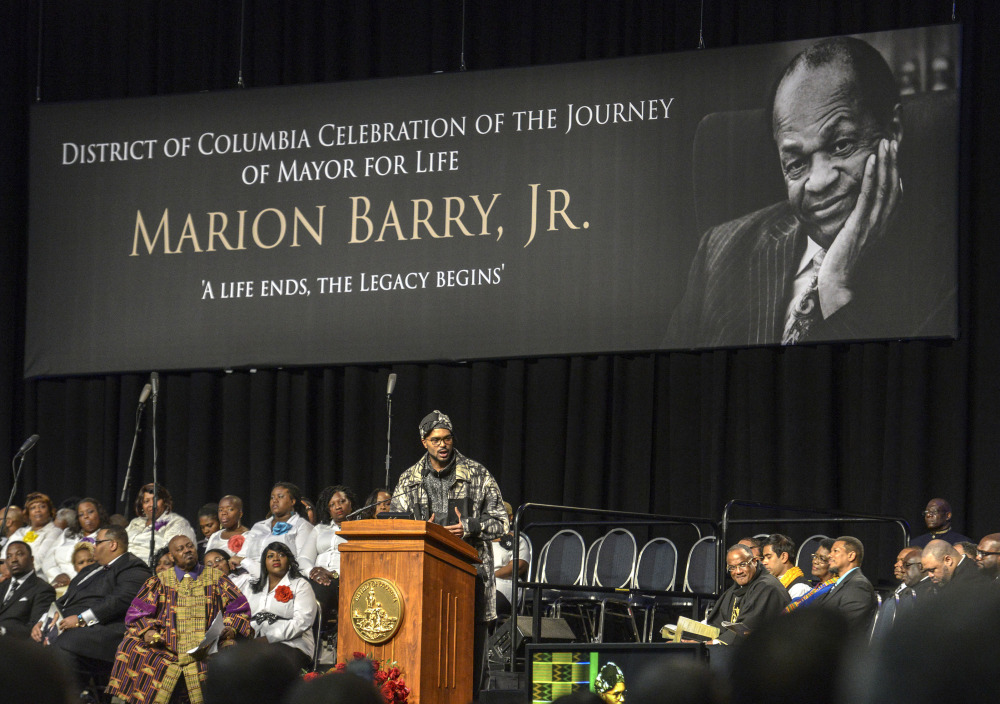WASHINGTON — Local and national political leaders, prominent clergy and ordinary Washingtonians who got their first job as a result of Marion Barry’s programs were among the thousands who gathered Saturday at the Washington Convention Center to say goodbye to the man dubbed “Mayor for Life.”
Barry died Nov. 23 at age 78. He served four terms as mayor and leaves a legacy as the most famous, the most beloved and the most divisive local leader in four decades of District of Columbia self-rule.
He was credited with expanding economic opportunity for the city’s black majority, and he worked to revitalize downtown Washington. He also had well-documented personal struggles, culminating in a 1990 arrest for smoking crack cocaine. He served six months in prison but was later elected to his fourth term, capping a remarkable comeback.
“Marion Barry was an icon. He was the consummate politician. He was an elder statesman. He was a fierce fighter for the dispossessed,” said the Rev. Willie Wilson, a politically powerful southeast Washington pastor and one of several clergy who ministered to Barry over the years.
Here’s how people were remembering Barry on Saturday:
Mayor Vincent Gray, a longtime friend and political ally of Barry, said Barry stood up for people with intellectual disabilities long before it was politically popular to do so. Gray, who directed an organization for the intellectually disabled, recalled how Barry dealt with a wealthy resident who didn’t want a group home in his neighborhood. “Mayor Barry said, and I quote, ‘You really don’t want any answers, do you? If you want to talk about how we will make this work, I will stay with you all night. Otherwise, I have nothing else to say to you.’ That was vintage Barry,” Gray said. “The home opened and was a huge success.”
The Rev. Louis Farrakhan, the head of the Nation of Islam who was in Washington to support Barry during his trial on drug charges, said he was asked by a reporter at the time what he thought of a man who broke his marital vows and used drugs. “I said, ‘Who are you talking about, John Fitzgerald Kennedy?’ That ended the press conference,” Farrakhan said to a raucous ovation.
Farrakhan also credited Barry with the success of the Million Man March on the National Mall, which he organized and led in 1995.
Barry’s only son, Christopher Barry, said his father for teaching him both academic and life lessons. He said Barry wasn’t a conventional father, but he always felt the love Barry had for his constituents.
Charles Wilson, 54, who got his first job through Barry’s summer youth program, said, “He was our father. He gave us jobs. He’s done a lot for the city. Whatever I have belongs to him – my house, my car, my job with D.C. government,” Wilson said.
Copy the Story LinkSend questions/comments to the editors.




Success. Please wait for the page to reload. If the page does not reload within 5 seconds, please refresh the page.
Enter your email and password to access comments.
Hi, to comment on stories you must . This profile is in addition to your subscription and website login.
Already have a commenting profile? .
Invalid username/password.
Please check your email to confirm and complete your registration.
Only subscribers are eligible to post comments. Please subscribe or login first for digital access. Here’s why.
Use the form below to reset your password. When you've submitted your account email, we will send an email with a reset code.